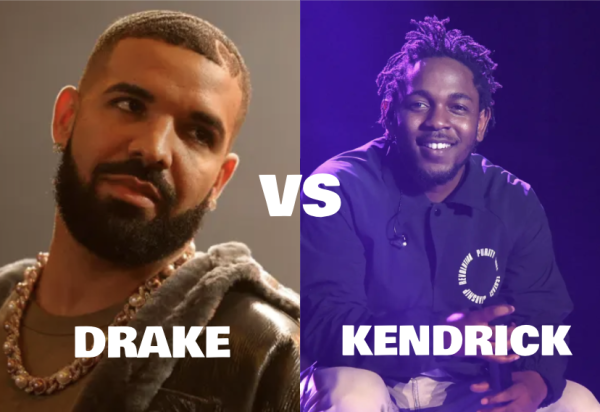Life, Liberty, and Minor Complaints: Politics and Money
The amount of money in politics harms democracy
Growing up, we all learned about the three branches of government and how they all worked together in perfect harmony to listen to the needs of the people and make this country a beautiful land of butterflies and happiness. We were told that politicians are elected when Americans go out and vote with their conscience, and then the people elected actually listen to their constituents and represent them in a fair, lawful way.
Unfortunately, the political system is tangled in a mess of corruption, and the people who are supposed to represent us are typically only looking out for the needs of those who give them substantial sums of money.
This lack of proper representation can be seen evidently through a study conducted by Princeton University in 2014. This study had a simple question to answer: does Congress represent the opinions of the people? They did this by comparing public support for bills with the likelihood of that bill becoming law.
What infuriates me most about this whole thing is that the vast majority of Americans are working honest jobs and paying taxes to a government that doesn’t even work for them.
— Andrew Torrance
After conducting research they found is that no matter how much public support a bill recieved, it had about a 30% chance of becoming law. This means that whether no-one supports a bill or every single person in the country supports it is completely irrelevant. The study says, “The preferences of the average American have a statistically non-significant impact upon public policy.” This is an embarrassment to the very idea of democratic freedom.
So if public opinion doesn’t affect Congressional actions, then what does? The truth is, it’s all about the money. The Princeton study also looked at the opinions of economic elites and special interest groups, and compared their opinions with the likelihood of bills being passed. The results were overwhelmingly clear: if lobbyists want a bill passed, it is likely to happen, and if they don’t want it to be passed, they can surely kill it before it even has a chance.
This corrupting influence shows that Congress is so broken that not even MacGyver could put it back together. Democracy simply cannot work if so few people have a say in what happens in such a powerful country.
What infuriates me most about this whole thing is that the vast majority of Americans are working honest jobs and paying taxes to a government that doesn’t even work for them. That’s how our political system works – we pay taxes into it, and in return we get overpriced healthcare, a crumbling education system, a convoluted tax code that cripples the middle-class, and presidential candidates who could potentially break the foundation of this country down into a fine dust of sadness and regret.
Our democracy is in such a sorry state because it’s completely legal for individuals and corporations to bribe Congress to make laws that favor them. In most countries, this practice is called corruption, but in America, we just call it lobbying.
Lobbying isn’t inherently bad; in fact, it needs to exist in a good democracy. Everyone has the right to advocate for their ideas and positions to their elected representatives, and that right is protected by the Constitution.
The problem lies in the fact that many lobbyists are using money, gifts, and lucrative job offers to make their voices heard rather than lobbying in an ethical way. Many lobbying firms host fundraisers and invite politicians from both sides so the firm can raise influential amounts of money for their campaigns. This is essentially a bribe, and the politicians know where to go and how to vote if they want the money to keep coming.
During politicians’ tenures, a lobbyist may approach them and offer them a job at the lobbying firm once their term in office has expired. These job offers typically result in a raise of over 1400%, so it’s no surprise that half of retired senators register as lobbyists according to a Vox report.
Oftentimes, lobbyists actually write the laws themselves rather than the legislators. For example, in 2013 an adjustment was made to the Dodd-Frank act, which originally restricted bad banking practies, that deregulated big banks to make it easier for them to pull off the same tricks they pulled that led to the 2008 financial collapse.
According to the New York Times, 70 of the 85 lines of the bill reflected exactly what the lobbyists from Citigroup wrote down. If you were annoyed at Melania Trump for plagiarizing a few lines from Michelle Obama, you should be outraged by this practice as it happens way more often than many Americans think, and it provides a return on investment hundreds of times more than what the lobbyists put in.
Typically, this return on investment comes in the form of tax breaks for corporations, which shifts the tax burden to the law-abiding people of America.
In the last five years, the top 200 most politically active companies spent $5.8 billion on influencing the government. In return, those same 200 companies received an estimated $4.4 trillion in tax breaks. This averages out to about $4,100 per American taxpayer. That’s about as much money as each American spends on defense, education, and welfare combined.
This system has completely changed the way politics works in this country. According to data compiled by the Washington Post, the candidate who receives the most money ends up winning the election 91% of the time.
This means that the average US Senator has to raise about $14,000 every day of his or her campaign just to stay competitive. Because less than 0.04% of Americans spend $2,600 or more on campaign contributions annually, politicians have to seek out as much money from special interests as they can.
Even when they’re in office, politicians at the national level spend between 50% and 80% of their time trying to raise money. Because 70% of political donations come from just 0.4% of Americans, politicians are almost forced to stray away from the majority of their constituents in pursuit of big money lobbyists if they want to get re-elected.

















































Mason Sarro-Twickler • Mar 3, 2017 at 9:40 am
I think the idea of this recurring column is a great idea; I am actually thinking of starting one at our school paper the Devils advocate.
anyway, I agree with the assertion that that you make about money in politics. our democracy is being eroded by special interests and lobbyists. keep up the good work!